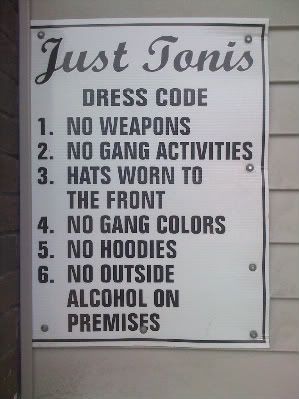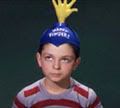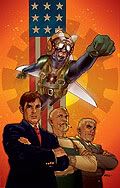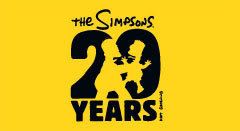My Bohemian Life
NEWS ITEM: HarperCollins has published “Just Kids,” a memoir by Patti Smith which recalls her early days in New York with the artist Robert Mapplethorpe.
He was The Photographer and I was The Poet, titles we had arrived at by the flip of a coin.
I was just a strung-out, wet-behind-the-ears, Dylan-lovin’, poetry-livin’ Jersey kinda gal. For me, New York City was the holy godhead, the poetic apotheosis of humanity, the centered third eye of civilization, and the home of Nathan’s Hot Dogs. He was the first thing I saw when I got off the bus: a fallen angel, a manic visionary, and a master of the bad check.
“You, sir, are a true renaissance man,” I said, having plucked up the courage to walk over and speak to him.
“What’s wrong with these?” he replied.
“What?” I asked.
“Didn’t you just call me a ‘rent-a-pants man’? Why should I rent pants?”
I never corrected him, but I noticed that he started to wear many different kinds of pants after that. It was the first of many unspoken bonds that we would never speak of.
We found an apartment in the artists’ neighborhood Lower Junkie Squalor. There, amidst the filth and the scum, we would dream of the endless stream of documentaries and coffee table books we might one day generate. We lit candles, read Tarot cards, and sent astral projections of ourselves to the heart of the universe, after which we’d watch The Joe Franklin Show. I called him La Bohèèm and he called me La Bohhèr, a joke he begged me to explain to him but I never did, preferring that it remain another unspoken bond between us.
It was not an easy existence. Our landlord was a rat. I mean he was, literally, an actual rat, who could stand on his hind legs and talk. He had the soul of a poet, though, and never asked us for the rent unless he himself was badly in need of cash for a new pair of rat-pants, often prohibitively expensive due to the work involved in creating a little hole in the back for a tail. We’d ask him over and over again why he didn’t just rent them, but he’d smile that little ratty smile of his and reply, whiskers twitching, “Rent, bah! That’s like throwing your money away!”
As a young girl I was enthralled by the apocalyptic verses of Rimbaud, Verlaine, and Edna St. Vincent Millay. I held their words in my heart like a pit bull, dreaming of the day when I, too, would get the opportunity to horribly maul the World of Art and take my place among the immortals.
As readers of any of my previous volumes will know (I Was A Teenage Misfit, Outsiders Are A Girl’s Best Friend), the artists are the misfits, the outsiders. I soon found out that one of the most difficult things about being a misfit is all of the famous people one has to fight their way through. You have to beat them off with a stick. An endless parade of famous people would pass through our humble garret. Picasso once stopped by looking to borrow some salsa. When we obliged, he paid us with a sketch of a melting horse or squirrel or some damn thing. And Bono once kept us up late into the night as he shared his dream of one day owning a preposterously large pair of sunglasses.
And as an outsider, I found myself at the center of more cultural turning points than Forrest Gump. When Dylan recorded The Basement Tapes, I was there. When The Beatles fired Pete Best, I was there. And when Alvin and the Chipmunks went electric, I was the one who stopped Pete Seeger from chopping their heads off with an ax. It was busy work being an outsider misfit, and I would occasionally despair of ever finding the time to articulate my own dark vision, which was growing worse by the day as neither of us could afford a proper eye exam.
And so the seasons changed, like a junkie trying to score some smack. Each evening would be spent in the service of art as we slowly honed our skills and searched for our authentic voices. Sometimes our authentic voices would get too loud and from time to time a cranky voice would admonish us through the ceiling: “Hey, you goddamn kids! Shut the hell up!” We found out later that man was Lou Reed, which didn’t surprise us in the least.
It soon became apparent, unfortunately, that one of us would have to find a job, a task that fell to me as I was the only one who owned their own pants. Finding no openings for “Shaman,” however, I fell back on the talents I had acquired during Home Economics class and hung out in the girls’ lavatory smoking. After three years of this, we were still no closer to our dream of buying a camera and so we determined to buy one in installments beginning with the lenscap. This purchase we eventually made with the money I’d earned by donating blood to a nearby Polish restaurant.
And so the world turned, like a 1950's hophead nodding out on dope. Years later we met on the street for a moment but, terrified, ran back to the safety of our limousines.
He was The Photographer and I was The Poet, titles we had arrived at by the flip of a coin.
I was just a strung-out, wet-behind-the-ears, Dylan-lovin’, poetry-livin’ Jersey kinda gal. For me, New York City was the holy godhead, the poetic apotheosis of humanity, the centered third eye of civilization, and the home of Nathan’s Hot Dogs. He was the first thing I saw when I got off the bus: a fallen angel, a manic visionary, and a master of the bad check.
“You, sir, are a true renaissance man,” I said, having plucked up the courage to walk over and speak to him.
“What’s wrong with these?” he replied.
“What?” I asked.
“Didn’t you just call me a ‘rent-a-pants man’? Why should I rent pants?”
I never corrected him, but I noticed that he started to wear many different kinds of pants after that. It was the first of many unspoken bonds that we would never speak of.
We found an apartment in the artists’ neighborhood Lower Junkie Squalor. There, amidst the filth and the scum, we would dream of the endless stream of documentaries and coffee table books we might one day generate. We lit candles, read Tarot cards, and sent astral projections of ourselves to the heart of the universe, after which we’d watch The Joe Franklin Show. I called him La Bohèèm and he called me La Bohhèr, a joke he begged me to explain to him but I never did, preferring that it remain another unspoken bond between us.
It was not an easy existence. Our landlord was a rat. I mean he was, literally, an actual rat, who could stand on his hind legs and talk. He had the soul of a poet, though, and never asked us for the rent unless he himself was badly in need of cash for a new pair of rat-pants, often prohibitively expensive due to the work involved in creating a little hole in the back for a tail. We’d ask him over and over again why he didn’t just rent them, but he’d smile that little ratty smile of his and reply, whiskers twitching, “Rent, bah! That’s like throwing your money away!”
As a young girl I was enthralled by the apocalyptic verses of Rimbaud, Verlaine, and Edna St. Vincent Millay. I held their words in my heart like a pit bull, dreaming of the day when I, too, would get the opportunity to horribly maul the World of Art and take my place among the immortals.
As readers of any of my previous volumes will know (I Was A Teenage Misfit, Outsiders Are A Girl’s Best Friend), the artists are the misfits, the outsiders. I soon found out that one of the most difficult things about being a misfit is all of the famous people one has to fight their way through. You have to beat them off with a stick. An endless parade of famous people would pass through our humble garret. Picasso once stopped by looking to borrow some salsa. When we obliged, he paid us with a sketch of a melting horse or squirrel or some damn thing. And Bono once kept us up late into the night as he shared his dream of one day owning a preposterously large pair of sunglasses.
And as an outsider, I found myself at the center of more cultural turning points than Forrest Gump. When Dylan recorded The Basement Tapes, I was there. When The Beatles fired Pete Best, I was there. And when Alvin and the Chipmunks went electric, I was the one who stopped Pete Seeger from chopping their heads off with an ax. It was busy work being an outsider misfit, and I would occasionally despair of ever finding the time to articulate my own dark vision, which was growing worse by the day as neither of us could afford a proper eye exam.
And so the seasons changed, like a junkie trying to score some smack. Each evening would be spent in the service of art as we slowly honed our skills and searched for our authentic voices. Sometimes our authentic voices would get too loud and from time to time a cranky voice would admonish us through the ceiling: “Hey, you goddamn kids! Shut the hell up!” We found out later that man was Lou Reed, which didn’t surprise us in the least.
It soon became apparent, unfortunately, that one of us would have to find a job, a task that fell to me as I was the only one who owned their own pants. Finding no openings for “Shaman,” however, I fell back on the talents I had acquired during Home Economics class and hung out in the girls’ lavatory smoking. After three years of this, we were still no closer to our dream of buying a camera and so we determined to buy one in installments beginning with the lenscap. This purchase we eventually made with the money I’d earned by donating blood to a nearby Polish restaurant.
And so the world turned, like a 1950's hophead nodding out on dope. Years later we met on the street for a moment but, terrified, ran back to the safety of our limousines.

















